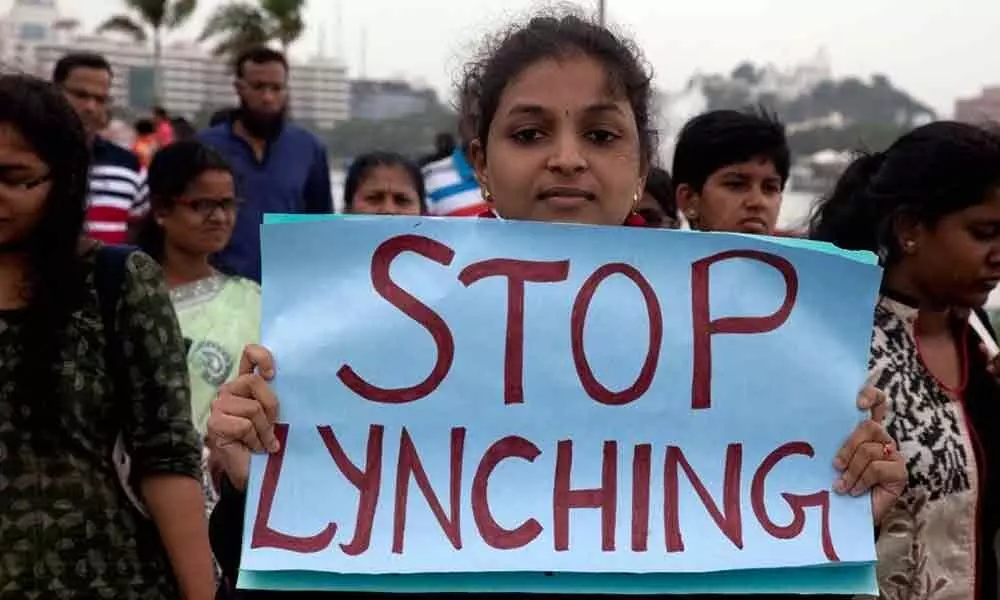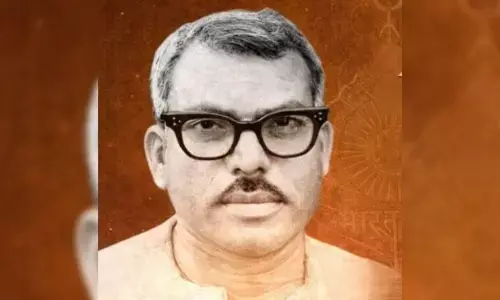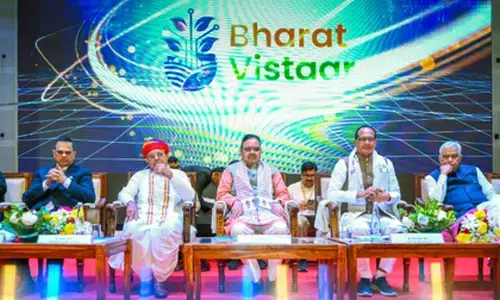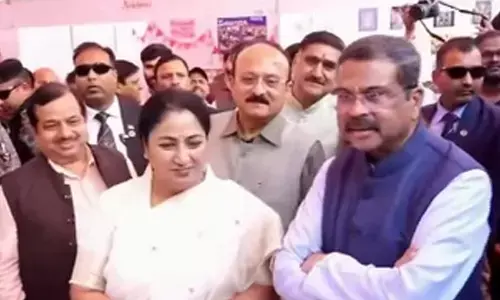Joint liability rule enough to punish lynching

The relevant question is whether our penal and evidence law is enough to tackle this horrendous crime which was not specifically defined? Taking note of lynching since 2017, the Supreme Court advised the Centre to draft a strict law to punish lynching. The Manipur and Rajasthan States passed Bills which are awaiting the assent of President. The Centre told Parliament that it constituted a committee to draft Bill to amend IPC and Cr PC. As advised by Supreme Court, we need a comprehensive penal law to prevent and punish lynching, as present law is awfully insufficient to deal with this joint crime by mob. Difficulty in tracing mob is no immunity for killing. Abetment of another to commit crime and criminal conspiracy among some persons leading to a crime also makes all involved liable as if each has committed that offence
Why can't we punish more than a hundred persons for killing three persons, if the evidence is there when the whole world could watch the video lynching them? This is yet another cruel lynching in India on April 16, 2020, in Gadchinchle villages of Palghar district of Maharashtrakilling two innocent Hindu sadhus in saffron robes and a driver of a vehicle they hired, indicating the utmost inhuman attitude of mob and criminal dereliction of duty by the police. Even four policemen were beaten up. Maharashtra HomeMinister officially released a list of hundred plus accused, to confirm that neither any Muslim nor any Christian was part of them. Figuratively we say rumors killed them. But mad, mindless people believing rumors to be true, killed them.
As per principle of joint liability enshrined in Section 34 of the Indian penal Code, each of them is liable for the whole offense of killing three. Section 34says "when a criminal act is done by several persons, in furtherance of the common intention of all, each of such persons is liable for that act in the same manner as if it were done by him along".If hundred people contributed injuries to one victim, after having conspired together, each of such mob will be guilty as if he alone killed him, according to this very significant principle of joint criminal liability. It is assessed by a TV channel during a debate in 2019 that there have been more than 250 cases of mob lynching in India, wherein Hindus, Muslims and others were also killed.
Several persons were lynched in UP, Jharkhand, Rajasthanover suspected illegal cattle trade including cows, child lifting and trade-in organs like kidneys. Prime Minister Narendra Modi on June 20, 2017, slammed Gorakshaksand said, "Killing in the name of Bhakti is wrong, no person is allowed to take the law in their own hand. It is unfortunate that in the name of cow protection the human beings are killed by so-called Gau Rakshak."The joint liability principle of criminal law, and evidence will not be affected by the religion of victim or accused. The relevant question is whether our penal and evidence law is enough to tackle this horrendous crime which was not specifically defined? Taking note of lynching since 2017, the Supreme Court advised the Centre to draft a strict law to punish lynching.
The Manipur and RajasthanStates passed Bills which are awaiting the assent of President. TheCentre told the Parliament that it constituted a committee to draft Bill to amend IPC and Cr PC. As advised by the Supreme Court, we need a comprehensive penal law to prevent and punish lynching, the present law is not awfully insufficient to deal with this joint crime by the mob. Difficulty in tracing mobile no immunity for killing. Abetment of another to commit a crime and criminal conspiracy among some persons leading to crime also makes all involved liable as if each has committed that offense. In July 2018, the bench of the then chief justice Dipak Misra and JusticesAM Khanwilkar and D Y Chandrachudsaid that it was the duty of the State to maintain law and order. The 'Command of Law' being supreme should come from the legislature which should not allow any citizens to take the law into his own lands. The Supreme Court had rightly directed all States to appoint a senior police officer for each district to serve as the nodal officer to ensure that cow vigilantism groups do not take the law into their own hands. The apex court had also directed the Chief Secretaries of every State to file a status report giving details of the action taken to prevent incidents of cow vigilantism. The apex courts advise was taken seriously by Manipur and RajasthanStates.The UP Law Commission under the chairmanship of Justice A N Mittal studied the killing of Mohammed Akhlaq in Dadri in 2015, Inspector Subodh Singh in Bulandshahrin 2018, etc and concluded that the existing law was not sufficient and recommended a separate law to punish mob-lynching crimes.
The UP Commission also suggested up to three-year punishment to social media criminals who are liable for disseminating very provocative and offensive materials. the bill suggests punishments ranging from seven years in jail to life imprisonment for the offense, as well as imprisonment for a year for any policeman or district magistrate who fails to prevent incidents of lynching in their jurisdiction. It shall be the duty of every police officer to cause a mob to disperse, by exercising his power under Section 129 of CrPC, which in his opinion has a tendency to cause violence or wreak the havoc of lynching in the disguise of vigilantism.
The police shall cause to register FIRunder Section 153A of IPC and/or other relevant provisions of law against persons who disseminate irresponsible and explosive messages and videos having content which is likely to incite mob violence and lynching of any kind. The State governments shall prepare a lynching/mob violence victim compensation scheme in the light of the provisions of Section 357A of Cr. PC within one month from the date of this judgment. The courts trying the cases of mob violence and lynching may, on application by a witness or by the public prosecutor in relation to such witness or on its own motion, take such measures, as it deems fit, for protection and for concealing the identity and address of the witness. Wherever it is found that police officer an officer of the district administration has failed to comply with the aforesaid directions in order to prevent and/or investigate and/or facilitate the expeditious trial of any crime of mob violence and lynching, the same shall be considered as an act of deliberate negligence and/or misconduct for which appropriate action must be taken against him/her and not limited to departmental action under the service rules. The departmental action shall be taken to its logical conclusion preferably within six months by the authority of the first instance.
The Supreme Court finally said: The directed measures should be carried out within four weeks by the Central and the State governments, and compliance reports also to be filed within that period and a comprehensive law is brought. The renowned senior advocate of SupremeCourt and MP of Rajya Sabha KTS Tulsiproposed a private Bill "the protection from Lynching Bill, 2017" said lynching means any act or series of acts of violence or aiding, abetting or attempting an act of violence, whether spontaneous or planned, by a mob on the grounds of religion, race, caste, sex, place of birth, language, dietary practices, sexual orientation, political affiliation, ethnicity or any other related grounds. Palghar lynching is not on these grounds but on a wrongful belief that the victims could be the kidney thieves.
ManipurBill's definition covers this aspect also. Attempt to lynch is also made punishable. Bills also provided for punishing police for dereliction of duty. These bills need prior nods of President. UnionHome Minister told the House that a committee under BPRD has been formed to recommend amendments to IPC and CPC. Till a law is made, lynching can not be allowed to continue.(The writer is former CentralInformation Commissioner and professor at Bennett University)







